Best wired headphones 2025: the 7 top pairs tested by our review experts
Wired is the way if you want the best performance for your money
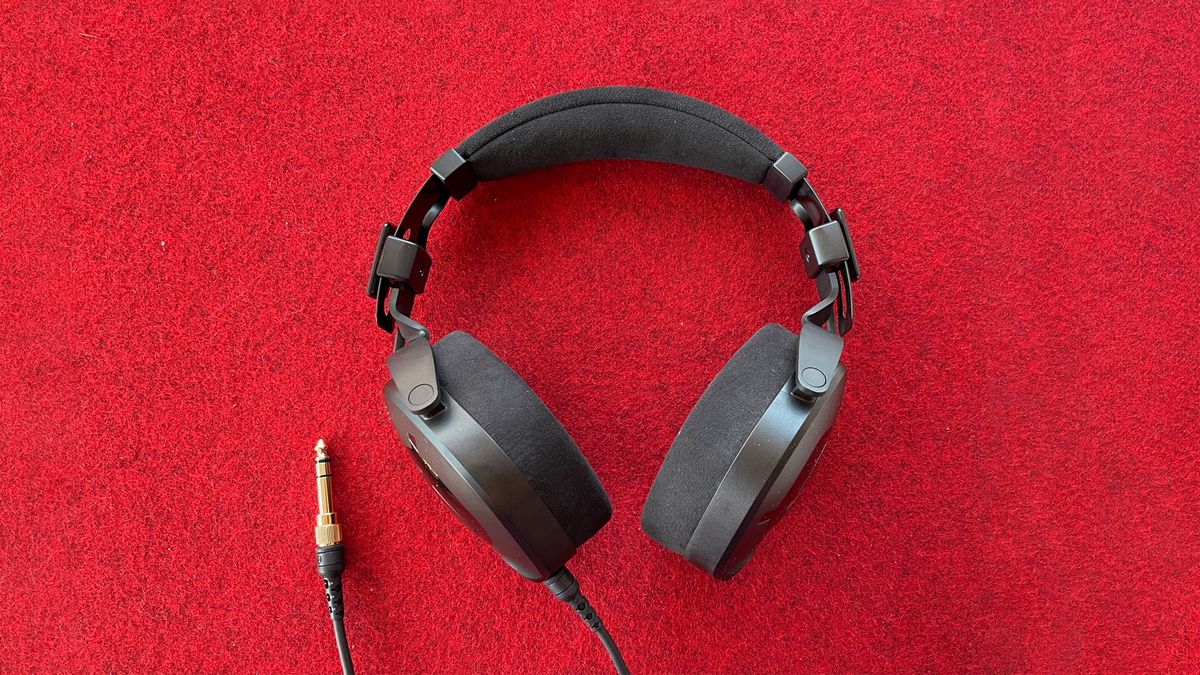
Want the very best sound quality you can buy for your budget? Wired headphones are the way to go.
Wireless headphones certainly are convenient – instead of the nuisance of tangled wires, you get untethered listening and smart features such as active noise cancellation and spatial audio. It's little wonder they are on heads everywhere you turn. But the best wired headphones sound notably better than similarly priced Bluetooth pairs, and that isn't their only advantage: they are more sustainable and don't run out of power or require a charger. The wired vs wireless headphones war is pretty evenly fought, then, so your priorities will determine your winner.
If you value sound quality and sustainability above all else, good for you – but which wired pair is most worthy of your investment? That is where this buying guide comes in. Below is our expert pick, spanning all budgets and covering both IEMs (in-ear monitors) and over-ear headphones styles. Our how to choose wired headphones section can help you pick the path to take.
Each and every pair has been rigorously tested by our expert reviewers – who have over 150 years of collective experience – and is a class leader at its respective price level when it comes to sound performance, build quality and comfort.
- Want to go wire-free after all? Here are the best wireless headphones
The quick list
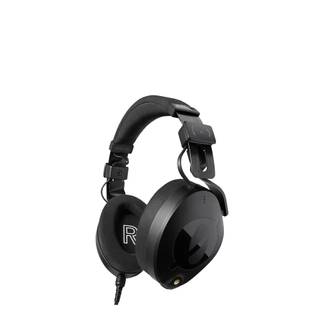
Whether you're after analysis or fun, the Røde NTH-100 are a terrifically capable and entertaining pair for the money. The best wired headphones for most people.
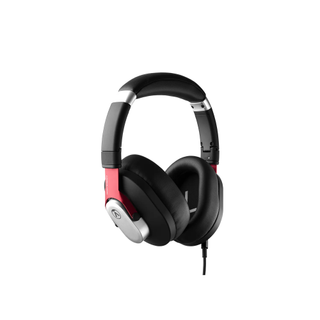
These little-known headphones look and feel pricier than they are – and they’ve got the performance to match.
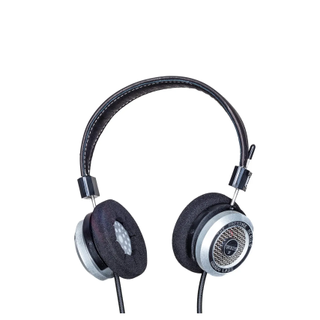
If you don't mind an open-back design that leaks a little sound in and out, you'll be rewarded with the cleanest, most spacious and insightful sound available at this price point.
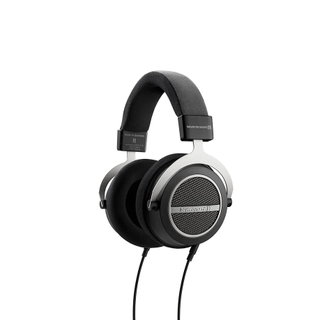
If you’re after a pair of headphones you can wear for hours and hours on end without complaint, look no further than these great-sounding slippers for your ears.
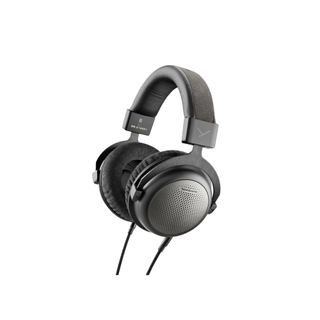
If you can afford them, the third generation of Beyerdynamic’s T1 are top-class performers of fantastic pedigree.
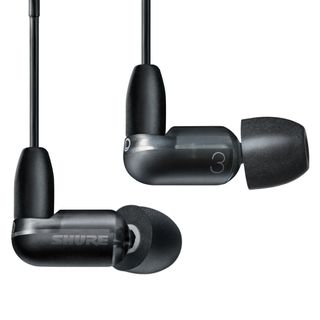
Shure’s in-ears sound so musical they’ll make you forget all about the convenience of wireless buds.
Load the next product… ↓
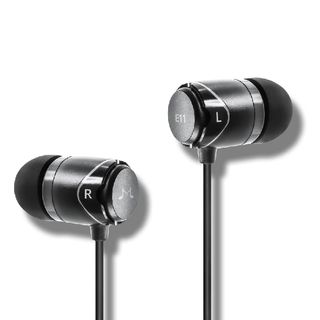
A great pair of budget in-ears that prove you don’t need to spend a fortune for entertaining performance. A natural upgrade from phone-bundled earbuds.
Recent updates
January 2025: Our list remains unchanged as we enter 2025, with our seven-strong pick remaining the favoured picks in face of the competition.

I am What Hi-Fi?'s managing editor and have been reviewing and writing about headphones for over a decade. I listen to music at my desk daily, so a good pair of wired headphones (fed by a DAC ) is valuable in my desktop set-up. While wireless pairs have their conveniences, wired headphones remain unbeatable when it comes to pure musical performance. Build quality and comfort over long listening hours also come into play when choosing the right headphones . My recommendations below cover a range of styles and budgets, and nothing is on here that I wouldn't be happy living with myself!
Best headphones overall




Specifications
Reasons to buy
Reasons to avoid
It's understandable if you’ve never heard of Røde. While the company is a pretty big deal in the world of pro audio, the NTH-100 launched only a couple of years ago were both its first pair of headphones and its first attempt to engage with the consumer audio market. So unless you are well-versed in recording studio mics or music creation, this Australian brand might be as brand new to you as it was to us. The important thing is that you know about Røde now.
Needless to say, the NTH-100 are solid debuts from Down Under. Tonally, they’re on the neutral and naturalistic side. What bass there is in this recording is respectably deep, yes, but it’s swift and well-controlled too – attack and decay of individual sounds are really well observed, and as a consequence, the NTH-100 are a rapid and (in the right circumstances) punchy listen. Rhythmic expression is decent, too.
At the opposite end of the frequency range, they’re similarly detail-heavy and similarly articulate. The midrange, though, is the star of the show. Our in-house review experts used Nick Drake’s Pink Moon as one of their test tracks with the Rødes and said: "Drake’s voice during this recording is quiet and without affectation, and sounds very much like the mic is very close indeed to his mouth – and subsequently the NTH-100 describe his singing with all the intimacy and immediacy it demands."
At this price, there are certain expectations we all might have when it comes to wired headphones – great sound and comfort for hours. But it's safe to say the Røde NTH-100 outperform those expectations comfortably and for that is one of the best wired pairs we can recommend overall.
Read our full Røde NTH-100 review
Best budget headphones




Specifications
Reasons to buy
Reasons to avoid
Austrian Audio is a Vienna-based company born out of a group of ex-AKG employees, so the team's decades of experience cannot be refuted – and it positively shines through in the Hi-X15. The company's first-ever range of wired headphones, Hi-X, offers plenty of decent models across on-ear and over-ear designs, both wired and wireless, but these affordable wired Hi-X15 will be your first choice if you prioritise sound quality and have a modest budget to work with.
The Hi-X15 may be affordable, but they don't once feel cheap or flimsy. The design, with proper metal hinges and soft ‘slow retention’ memory foam earpads, put a lot of plasticky competitors to shame. In our Hi-X15 review, our expert reviewers noted that "the grip level is nicely judged, with just enough pressure applied to keep them from sliding around your head" and that the earpads "didn’t seem to generate too much in the way of heat".
More importantly, sound quality is exceptionally good for the money, with our five-star review noting that they "sound so transparent and grown up that they belie their relatively modest price tag". The Hi-X15 deliver consistently high detail levels yet keep the soul of a song intact – no easy feat at this end of the market. Expression and emotion are usually lost when price tags drop to this level, but the Hi-X15's ability to deal with proper weight and sentiment is remarkable.
True bargains that are well worth consideration. If you'd prefer an open-back pair for that extra spaciousness it brings, the Grado SR80x (siblings to the pricier SR325x below) are definitely worth a look.
Read the full Austrian Audio Hi-X15 review
Best headphones for home




Specifications
Reasons to buy
Reasons to avoid
Grado's Prestige range has produced some of the Brooklyn-based company's finest headphones over the past 30 years. The series has evolved over time, but the latest ‘x’ generation models offer the same balance of quality and value that we've come to expect from such a likeable audio brand.
The range-topping SR325x headphones look much like their predecessors, the What Hi-Fi? Award-winning SR325e from several years ago, albeit with flatter foam earpads, an updated cable and lighter-coloured stitching on the firmly padded headband.
The real difference, however, is in the listening: the SR325x sound notably cleaner and clearer than their predecessors, offering a superbly detailed and articulate performance that comes across more precisely and insightfully than ever. They don't have the outright weight and low-end punch of closed headphone design, but their open design (which does leak sound in and out) replies with a spacious and very breathable soundstage that still kicks out deep, agile and tuneful bass frequencies.
You'll want to use them with a decent source beyond phone-level quality, though. "We’d be looking at an outboard DAC of the quality of the Chord Mojo 2 for the laptop and phone, and at least Astell & Kern’s A&norma SR35 hi-res music player, if we want to hear the scale of the SR325x’s talents," our reviews team suggests.
If you're looking for the best wired headphones in the game around this price, and don't mind an open-back design (which inherently leaks a little sound in and out), the SR325x should be top of your list. They're unbeatable value.
For a more traditional closed-back (i.e. non-leaky) alternative, the excellent Beyerdynamic DT 900 Pro X should be your go-to at this level.
Read the full Grado SR325x review

Open-back or closed-back? If you'll mostly be using wired headphones to listen to music at home, then an open-back model could be the long-term winner. In my experience, open-back models from Grado and Beyerdynamic are much less fatiguing to listen to over longer hours: the lack of a driver enclosure means they to tend be lighter (and therefore put less pressure on your ears and head), the open design allows more air pressure to flow around your ears, and they typically sound less direct and more spacious.
Best for comfort




Specifications
Reasons to buy
Reasons to avoid
Our first impression of Beyerdynamic’s Amiron headphones is one of comfort. The earcups and headband are made of two materials: one is Alcantara microfibers (whose texture is similar to suede), and the other is microvelour – combined, this delivers a wonderfully luxurious and plush pair of headphones that you can wear for many hours without feeling discomfort or irritation. Indeed, they are like slippers for your ears.
But they are not just comfortable; they sound fabulous too. We particularly like the Amiron's clear midrange vocals, tight sense of rhythmic drive and the way that they handle challenging rhythms and beats without breaking a sweat. They're clean, organised and detailed, and impressive across the entire frequency range, right down to the lowest lows – even if they don't emphasise bass like closed-back headphones tend to do. "The level of transparency and range that the Amiron provide means that, if you put high quality sound into it, you’ll get high quality sound out of it," notes our Amiron review.
Like the Grado headphones above, they're open-backed and leak sound like a sieve, so the usual disclaimer about not listening on public transport applies. Still, if you have a healthy budget and want a stunning pair of headphones for listening at home, the Amiron will keep you happy no matter what your favourite music genre.
Read the full Beyerdynamic Amiron review
Best for audiophiles



Specifications
Reasons to buy
Reasons to avoid
The original T1 open-back headphones – now over a decade old – are something of a touchstone for us as far as premium headphones go. The current third-general model is the one we are recommending here, and is all the evidence you need that Beyerdynamic has managed to evolve the recipe to keep these cans at the cutting edge of performance at their price level.
The T1 3rd Gen are simply designed to be easier to drive when used with laptops and mobile devices, compared with its predecessor. The old model had a 600ohm impedance, while this new one takes that down to 32ohms. That said, these remain mightily transparent performers and so deserve a high-quality source anyway.
The result is a sound that is very similar to the originals but cleaner and clearer, slightly less bright and a little smoother when it comes to treble. There's that same delivery of music with a palpable sense of power and authority, and vocals come through with nuance and clarity, too. These aren’t the kind of wired headphones that impress on a short listen but given a few days or even weeks, it’s hard not to fall under their spell.
The updated T1 are comfortable enough for long listening sessions thanks to a nicely shaped, partially Alcantara-covered headband and generous velour-trimmed earpads.
If you'd prefer a retro look, the Grado RS1x are very solid alternatives, and if money is truly no object then the Yamaha YH-5000SE are arguably the best headphones we've ever heard. Want closed-backs at this level instead? Check out the T1's brilliant siblings, the Beyerdynamic T5 (3rd Gen).
Read the full Beyerdynamic T1 (3rd Generation) review
Best premium earbuds




Specifications
Reasons to buy
Reasons to avoid
Shure makes some of the best wired earbuds around, something that becomes apparent the moment you pick up the Aonic 3. They're beautifully designed, comfy and surprisingly lightweight, lending a feeling of quality and elegance before you've even popped them into your lugs. The headphone cable hooks over the top of your ears and keeps them secure at all times, although there is a slight knack to getting the swivelling buds to sit perfectly in place.
Nine different eartip choices allow for excellent isolation, while an in-line remote and mic can control your tunes and answer calls. We've griped about rival companies giving poor choices of eartips in the past (three is not enough to cover all shapes and sizes), so Shure's range of options is truly welcome.
When it comes to sound quality, the Aonic 3 absolutely nail it. They're dynamic, detailed and their toe-tapping sense of rhythm and timing needs to be heard as a matter of importance. "In the nicest possible way, the Aonic 3 are the kind of headphones you can put on and just forget about," says our Aonic 3 review. "There isn’t a single element that sticks out – bass notes don’t protrude and highs don’t cut too deep. The Shures are honest, transparent and true to the original recording."
We can't think of any pair of in-ear wired headphones at this price that comes close to the Aonic 3's musicality and insight, but if your budget does stretch further, the even more transparent next-model-up Aonic 5 are your best bet.
Read the full Shure Aonic 3 review
Best budget earbuds




Specifications
Reasons to buy
Reasons to avoid
The SoundMagic E11C wired earbuds are the Award-winning successors of the five-star E10 that were our go-to budget in-ear recommendation for years. We're happy to report that this latest model is still pretty magic thanks to an improved driver and a silver-plated copper cable, making them a significant upgrade for the earbuds bundled with phones these days.
The better driver brings gains in sound quality, but it still remains recognisably SoundMagic in character. Bass is ample, with plenty of warmth and depth to keep you enveloped, while the top-end isn't compromised or lessened. The midrange has decent clarity, displaying great energy and control, pulling everything together into a satisfying, cohesive musical package.
It’s also worth pointing out that the sensitivity rating of 112dB is pretty high, so the E11C can deliver plenty of volume and will use less of your device’s power at average listening volume.
As our expert reviewers concluded in our E11C review, they "continue the fine work of their predecessors and deliver an entertaining, upfront sound, complete with a remote control and mic." If you're on a budget, make no mistake that these are solid buys.
Read the full SoundMagic E11C review
Also consider
- Austrian Audio The Composer – high-end alternatives
If your budget extends beyond the entries in this list, you have many excellent audiophile headphones available to you, including these open-backed newcomers, which sound as balanced and insightful as we’ve come across at this level. - Focal Clear Mg – premium alternatives to the Beyerdynamic T1
Focal is behind many excellent high-end pairs, including the top-tier Utopia and Stellia. The Clear Mg are more modestly priced but no less impressive for their level. They look great and sound even better. - Beyerdynamic DT 700 Pro X – Grado SR325x alternatives
If you don't like the rather divisive look of the Grados, these brilliant Beyerdynamics are another similarly priced, open-back model worth your cash. Their closed-back DT 900 Pro X siblings are fantastic too. - Shure Aonic 5 – premium alternatives to the Aonic 3
If you're fortunate to have more cash to splash on wired in-ears, these Shures are worth their premium over their Aonic 3 siblings. Better still, check out the higher-end Sennheiser IE900.
How to choose the best wired headphones for you
If you've decided on wired headphones over wireless models, you either prioritise sound quality, don't want the faff of having to charge headphones, or are thinking about sustainability. Or all three.
The first and most obvious consideration when it comes to deciding on a pair to buy is whether you want an in-ear or over-ear design. If it's the latter, your next question is closed-back or open-back? Open-back designs 'leak' sound in and out but do tend to produce a more expansive, natural sound, while closed-backs are more common and seal sound far more effectively, making them the pick for out-and-about use.
In-ears are more straightforward in that they don't tend to vary in style, though you should note that feature sets aren't always similar – do they come with an in-line remote and mic for taking calls, for example? Are the earpieces detachable from the cable for easy replacement? How many ear tip sizes come in the box?
Comfort should be high on your list too. In-ear headphones are great for on-the-go listening due to their compact and portable form factor, though a pair of well-padded over-ears that aren't as sonically or physically intrusive are better suited to all-day home listening.
Active noise cancellation (ANC) used to be a common feature of wired headphones, but wired ANC models are a rare breed now (the Lindy BNX-60 is one such pair), primarily because noise-cancelling is increasingly associated with portability and thus goes hand-in-hand with Bluetooth connectivity for convenient-first listening.
Nearly all wired headphones come with a 3.5mm cable, though if you're looking for a pair for home use with your desktop or hi-fi system, you might want to look out for wired headphones with bundled accessories such as a longer second cable or a 6.3mm adapter. And if you have a DAC or headphone amplifier you wish to use them with (recommended for all but budget pairs), picking a model that is a good sonic match for them is a key consideration too.
How we test wired headphones
We pride ourselves on having state-of-the-art testing facilities where our team of experienced in-house reviewers test the majority of hi-fi and AV kit that pass through our door. Of course, testing wired headphones doesn't always require advanced facilities – though we do try the more premium over-ear pairs in our reference hi-fi system to see how they fare with some of the most sophisticated components money can buy.
What is important in our wired headphones reviewing process is that each model is compared to the best in its price and style class – whether that's one standout pair or a few we favour the highest among the 50+ models we listen to each year for reviews and What Hi-Fi? Awards judging. We keep class-leading products in our stockrooms so can always compare new products to ones we know and love.
We are always impartial and do our best to make sure we're hearing every pair of headphones at its very best, so we'll try plenty of different music genres and give them plenty of listening time, while the wired headphones that warrant being used with a DAC/headphone amp (all but the very budget models) are tested with a price-suitable one. It's not just about sound quality, of course. We use wired headphones for weeks during testing to get a firm idea of their fit and how comfortable and durable they are for long periods of listening.
In accordance with how What Hi-Fi? tests all products that pass through our doors, all review verdicts are agreed upon by the team, which collectively has over 150 years of experience, rather than an individual reviewer, eliminating any personal preference and ensuring we are being as thorough as possible, too. There's no input from PR companies or our sales team when it comes to the verdict, with What Hi-Fi? proud of having delivered honest, unbiased reviews for decades.
Read more about how we test and review headphones at What Hi-Fi?.
FAQ
Are wired or wireless headphones better?
If getting the absolute best sound quality you can for your budget is your priority, then wired headphones still have a considerable edge over wireless models when it comes to audio performance. Wired headphones are also more sustainable, as they don't require batteries that need replacing and aren't made obsolete when new Bluetooth or wireless technology emerges.
However, wireless performance is getting better every year and there are certain features (such as active noise cancellation) that are now only found in Bluetooth headphones, while features such as spatial audio (for 3D immersive sound) and smart or touch controls are only seen on wireless types. Their cable-free design can be more portable and more convenient when you're regularly on the go, too.
Ultimately, which type you should buy comes down to your priorities: go wired if sound quality is all you care about; go wireless if you want convenience and next-gen headphone features.
A more detailed comparison can be found in our wired vs wireless headphones guide.
Should you choose headphones or earbuds?
Generally speaking, 'headphones' refer to on-ear and over-ear designs where the earpads are placed on or around your ears, while 'earbuds' refer to in-ear models whose eartips bury into your ear canal. Which type you choose will depend on personal style preferences, where you'll be listening to them (at home or on the move?), and what level of performance you're expecting.
Earbud designs are better for exercise and portable listening as they're discreet and fit more securely than a bulkier on/over-ear design. As they shoot music straight into your ear canal, they tend to sound more direct too. They're smaller, of course, and so easier to carry around with you, and there's a much wider choice at the budget end of the market below around £50/$50/AU$80, where on/over-ear designs are harder to come by.
On the other hand, on/over-ear designs are the ones to go for if you want the best sound you can buy, as earbuds (especially wireless models) don't reach the same performance levels at the highest end of their market. Since there's more space between your inner ear and the headphone driver, they are more comfortable to wear for long periods without your ears getting sore.
For more detail, check out our headphones vs earbuds guide.
Recent updates
- November 2024: We have labelled our newly crowned What Hi-Fi? Award 2024 winners in this list. None of the wired pairs manufacturers submitted for our Awards judging dethroned any of the existing class leaders, so this list remains the same.
- September 2024: We've beefed up our Also Consider list.
- July 2024: No new entries this time, despite having tested a handful of models since our last update. The newly reviewed, four-star Sennheiser HD 620S and Meze Audio Empyrean II came fairly close, but they don't bump their respective rivals off this (or our Also Consider) list.
- May 2024: The newly reviewed Austrian Audio The Composer make our 'Also Consider' section, which has just been added to give readers greater choice at the higher end of the market.
- February 2024: Added a top tip, added FAQ section to help with buying decisions and most frequently asked questions, and updated our testing process.
- November 2023: What Hi-Fi? Award winners labelled after the 2023 Awards Best Buys and Product of the Year announcements.
MORE:
Best wireless headphones: Bluetooth headphones for every budget
Really, really into sound? These are the best audiophile headphones for you
Check out the best DACs you can buy to get even better performance from wired headphones
Get the What Hi-Fi? Newsletter
The latest hi-fi, home cinema and tech news, reviews, buying advice and deals, direct to your inbox.
Becky is the managing editor of What Hi-Fi? and, since her recent move to Melbourne, also the editor of Australian Hi-Fi magazine. During her 10+ years in the hi-fi industry, she has reviewed all manner of audio gear, from budget amplifiers to high-end speakers, and particularly specialises in headphones and head-fi devices. In her spare time, Becky can often be found running, watching Liverpool FC and horror movies, and hunting for gluten-free cake.
- Tom Wiggins
- Harry McKerrellSenior staff writer
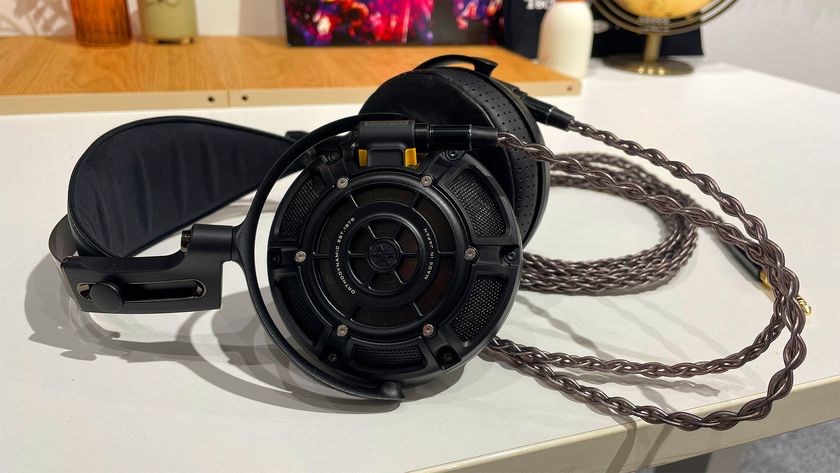
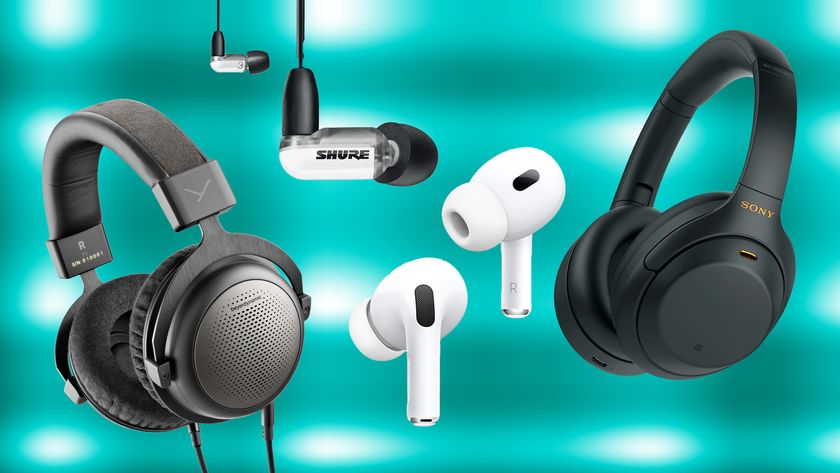
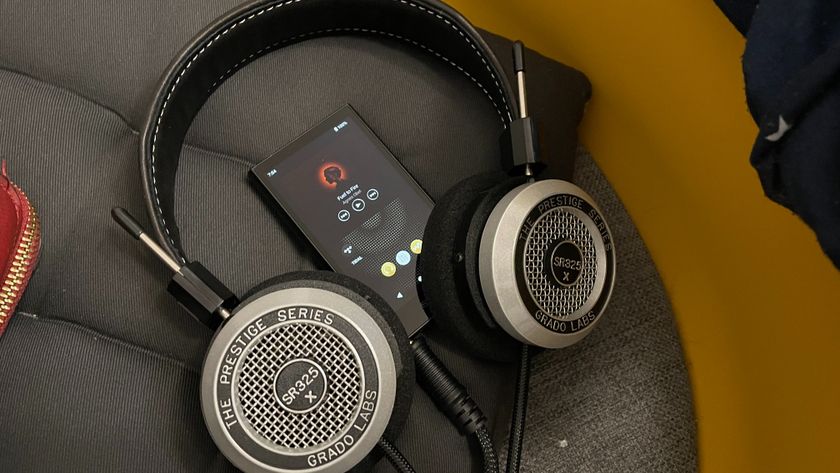
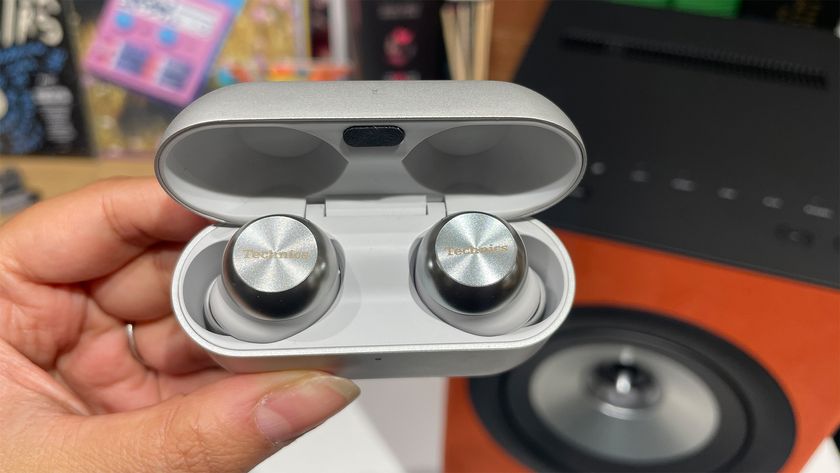
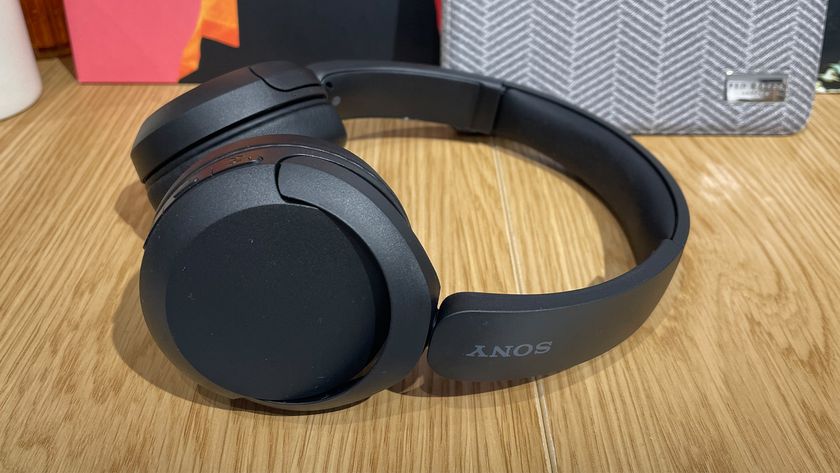
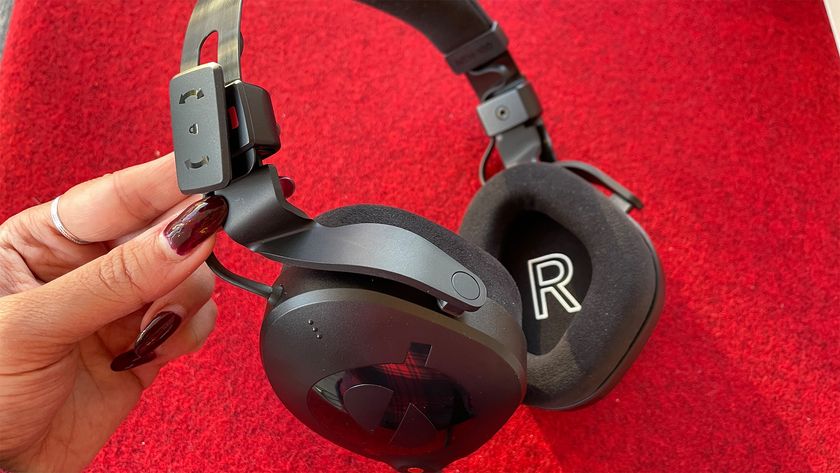
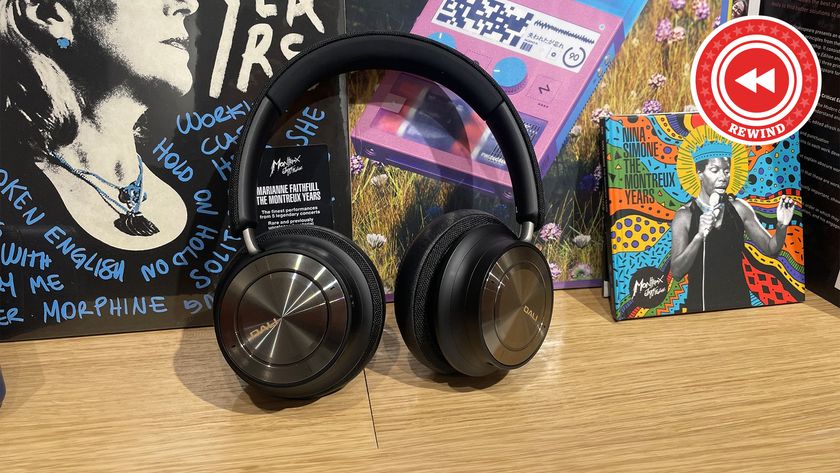
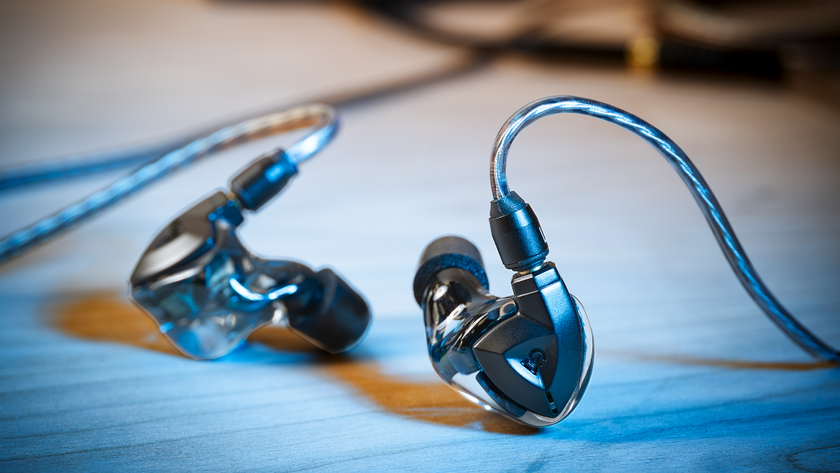
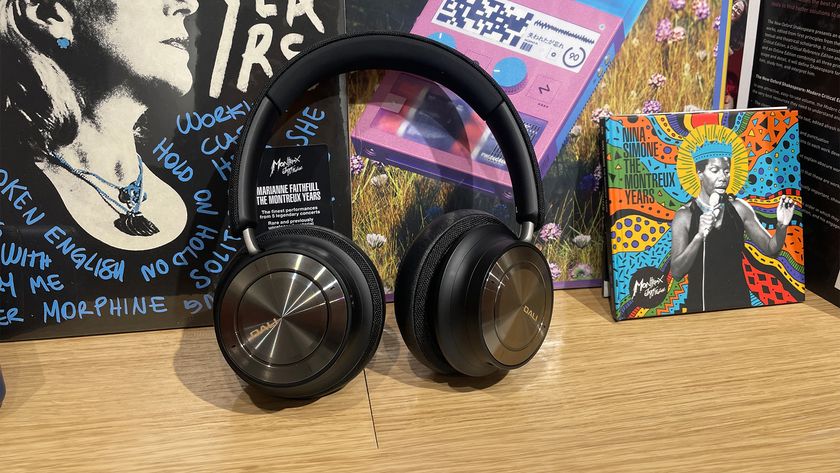

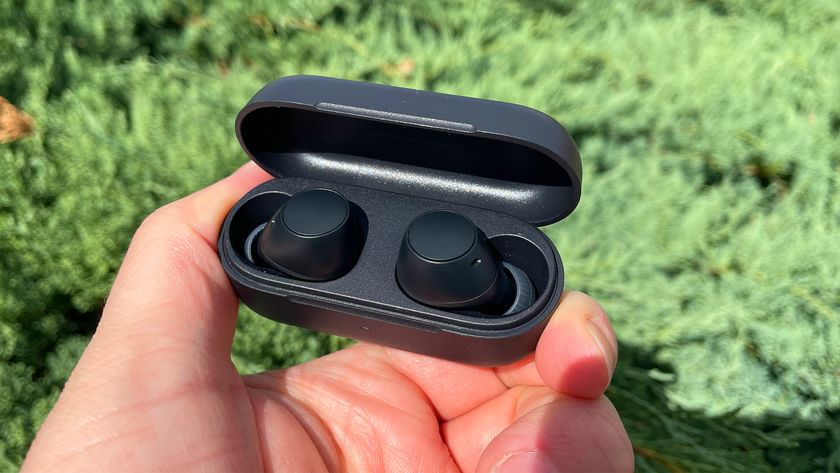

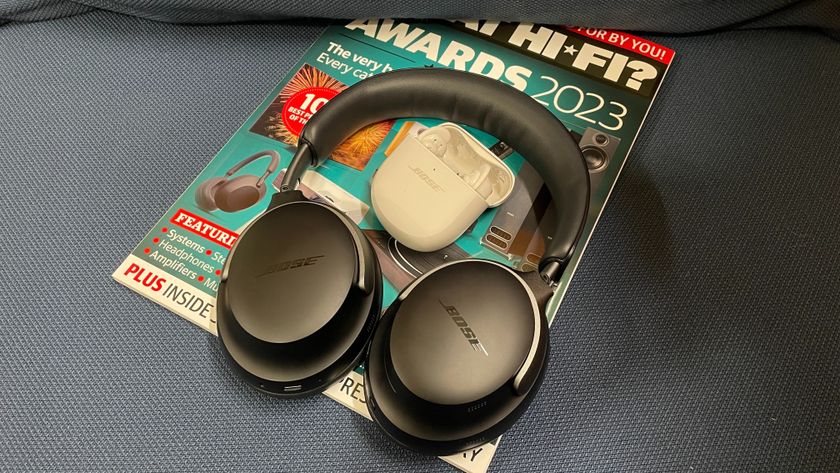
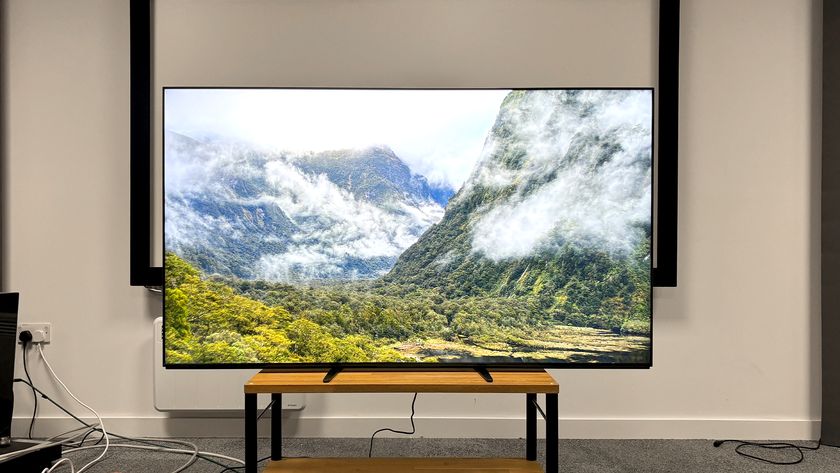
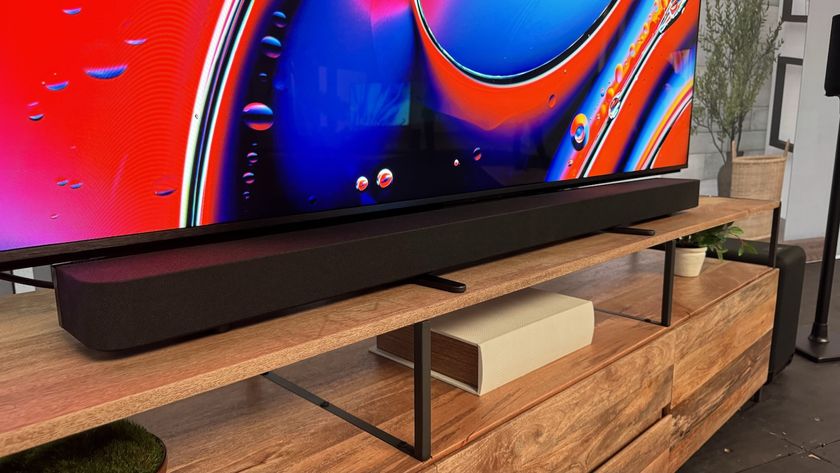

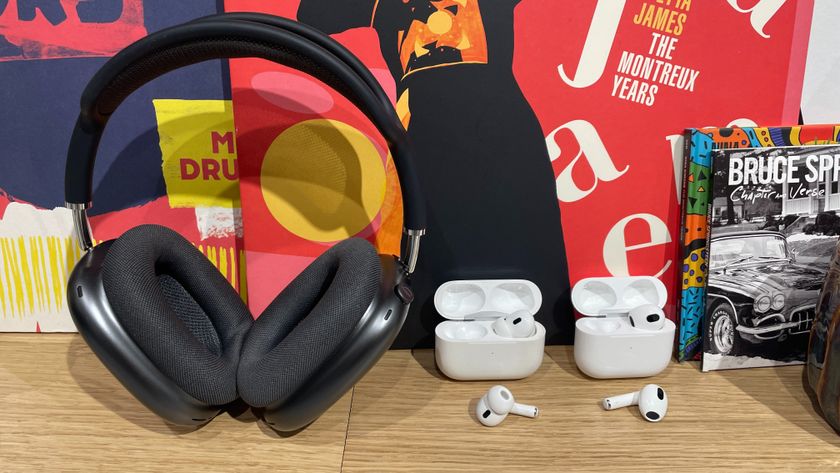
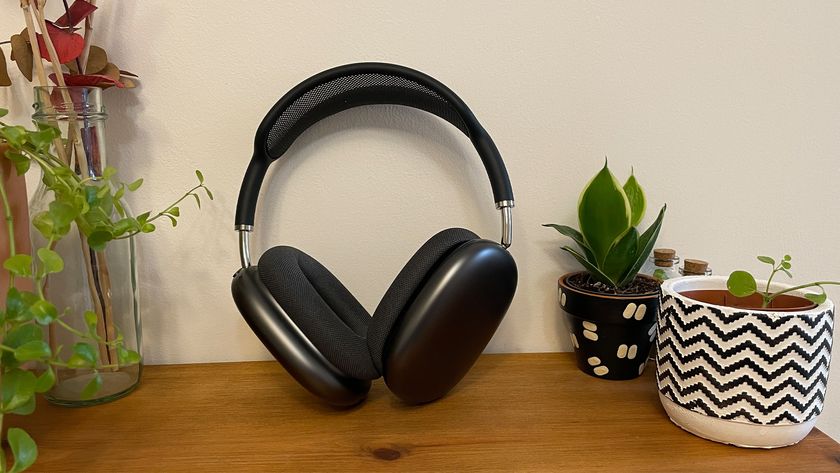
-
Navanski This may seem a touch pedantic but some of the items listed in your article are not headphones. They are earphones. The list you have concocted is using too broad a brush. I would much prefer a separate list for earphones.Reply
You may even consider splitting the personal listening devices into those you could class as portable and those which should be left at home.
I'm also surprised to see some manufacturers represented more than once in the list. Are you seriously stating that AKG, Focal, Sennheiser, Audeze and HiFiMan, to name just some, are not worthy of being listed? -
Valkyr09 This list is a load of rubbish. You are putting two grados on the recommended when there are better and cheaper alternatives with better build. The grados are flimsy and creaky for the price you pay. And their tuning is rubbish as well. I was using them before and when I wanted to get more details from them I would have to crank the volume. That meant the bass goes up as well and you end up with muddy details and a horrible sound. Definitely keep away or get them on a deal.Reply -
Bloke Agreed. I've never understood WHF's longstanding fixation with Grado. Their tonal balance is a loudness button, and the ragged HF makes my ears bleed.Reply -
Navanski Reply
Personally I like the Grado sound. It is a distinctive sound which some people find too bright, it's a matter of personal taste. I would agree however that in a list of the best headphones, only one set of Grado would suffice. Where are the AKG, Focal, Sennheiser, Audeze and HiFiMan ?Bloke said:Agreed. I've never understood WHF's longstanding fixation with Grado. Their tonal balance is a loudness button, and the ragged HF makes my ears bleed.